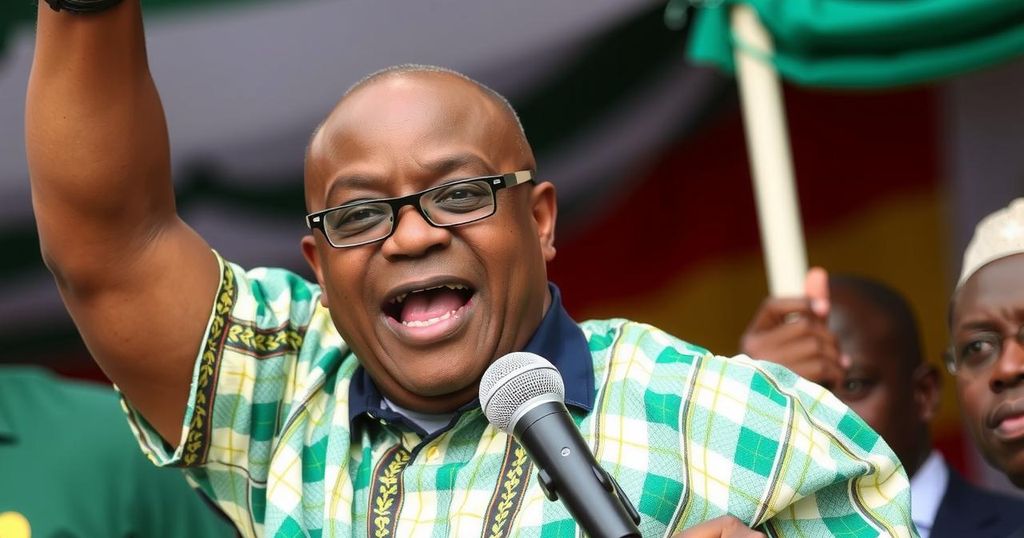John Mahama’s Resounding Victory Marks a New Era for Ghana’s Governance
John Mahama has won Ghana’s presidential election with 56% of the vote, defeating Vice President Mahamudu Bawumia. This victory represents a reaction against the ruling party’s economic management amid challenging economic conditions. Mahama’s victory also reflects a desire among Ghanaians for significant change in governance.
Ghana’s opposition leader, John Mahama, has officially claimed victory in the recent presidential election, decisively defeating the ruling party’s candidate, Vice President Mahamudu Bawumia. Mahama secured 56 percent of the vote, reflecting widespread public dissatisfaction with the government’s handling of the economy, which has been marked by soaring living costs and significant economic turmoil. This victory culminates an electoral turnaround for Mahama, who previously faced two unsuccessful attempts at the presidency. The former president has pledged to “reset” the country’s economic framework and reform the governance system to address the challenges facing Ghana. The electoral process showcased a 60.9 percent voter turnout, a decline from previous elections, underscoring the changing political landscape amid economic discontent.
The recent election in Ghana was heavily influenced by the country’s economic difficulties, highlighted by a debt crisis, currency devaluation, and high inflation rates that have affected the populace’s living standards. The opposition National Democratic Congress (NDC), led by Mahama, capitalized on these issues to regain power following a challenging term for the ruling New Patriotic Party (NPP). Historically, Ghana has demonstrated a stable democratic transition between its two major political parties since the onset of multi-party democracy in 1992, with economic performance often playing a decisive role in electoral outcomes.
The election of John Mahama signifies a notable shift in Ghana’s political landscape, as voters responded to the pressing economic challenges faced during the outgoing government’s term. Mahama’s commitment to economic reform and addressing public concerns highlights the importance of responsive governance in maintaining public trust. The challenges ahead will require substantial efforts to navigate Ghana away from its recent economic hardships and fulfill the aspirations of the electorate.
Original Source: www.france24.com




Post Comment